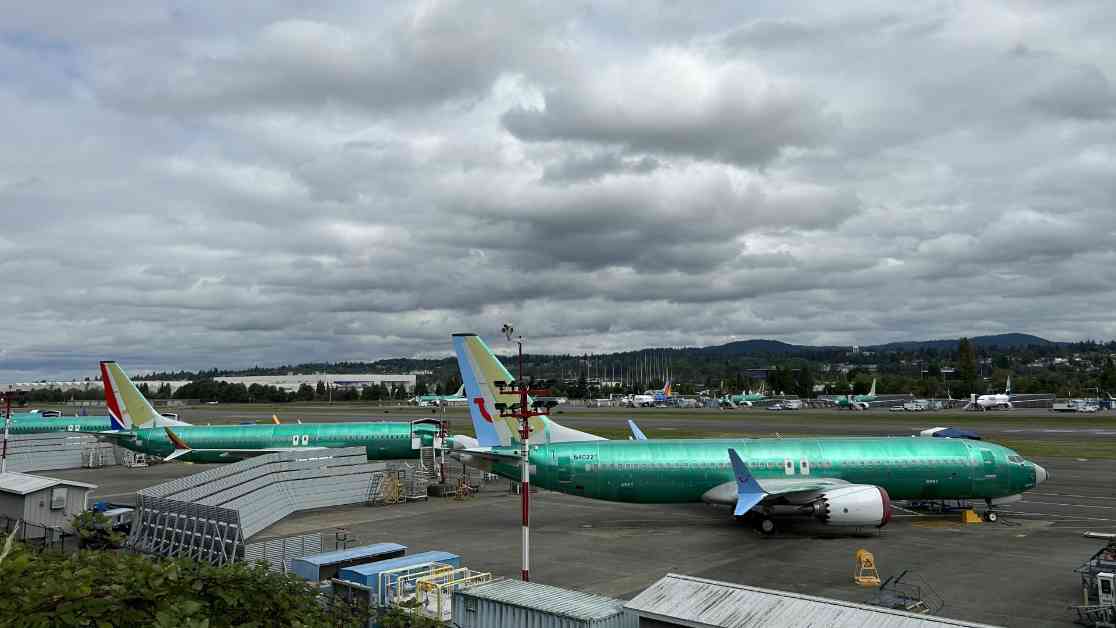Boeing’s Delivery of 30 Airplanes in December Widens Gap with Airbus in 2024
Boeing, the aerospace giant, recently handed over 348 airplanes in 2024, marking a significant decrease from the previous year’s numbers. This decline was primarily due to challenges faced by Boeing, including a midair door panel blowout and a machinist strike that disrupted production. In comparison, Boeing’s main competitor, Airbus, delivered 766 jetliners to customers last year, showcasing a considerable lead over Boeing. Both companies struggled with supply chain issues that slowed down production, despite having strong backlogs.
Boeing’s December Deliveries
In December, Boeing managed to deliver 30 airplanes, a positive sign as it resumed production of its popular 737 Max planes following the resolution of the machinist strike. Deliveries are crucial for manufacturers as they represent when customers pay the bulk of an airplane’s price. The restart of production was a significant milestone for Boeing, indicating a potential recovery from the challenges faced earlier in the year.
Challenges and Opportunities
A shortage of aircraft from suppliers has led to an increase in lease rates, with expectations of reaching record highs this year, according to aviation data firm IBA. Despite these challenges, Boeing secured 142 gross orders in December, including significant orders for 737 Max planes and 787s. These orders demonstrate continued demand for Boeing’s aircraft, highlighting potential growth opportunities for the company.
Future Outlook
As Boeing prepares to report its fourth-quarter and full-year results, investors are eager to learn about the company’s plans to ramp up production and improve profitability. CEO Kelly Ortberg and other Boeing leaders will face tough questions about the strategies in place to address the delivery gap with Airbus and navigate the ongoing supply chain disruptions. The aerospace industry remains competitive, with both Boeing and Airbus striving to meet customer demands and adapt to evolving market conditions.
In the midst of these challenges, Boeing’s resilience and commitment to innovation will play a crucial role in shaping its future success. By addressing key issues, seizing growth opportunities, and enhancing operational efficiency, Boeing can position itself for sustainable growth and profitability in the dynamic aerospace market.
Let’s take a moment to appreciate the hard work and dedication of the employees at Boeing who continue to strive for excellence despite facing adversities. Their commitment to delivering high-quality aircraft and driving innovation in the industry is truly commendable. As we look ahead to the future of aviation, let’s support and celebrate the efforts of all those who contribute to making air travel safer, more efficient, and more sustainable for generations to come.



















